
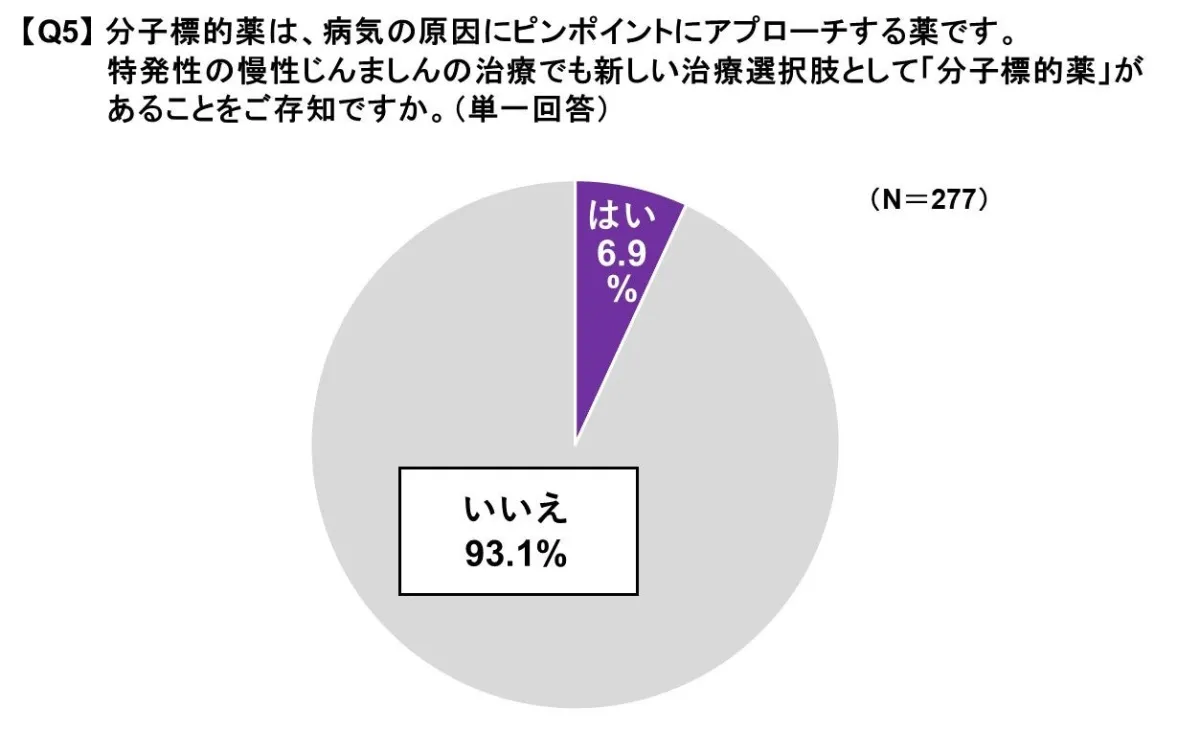
Unveiling the Realities of Chronic Spontaneous Urticaria: Insights from a Nationwide Survey
Unveiling the Realities of Chronic Spontaneous Urticaria
Chronic spontaneous urticaria (CSU) is a debilitating skin condition marked by recurrent, itchy hives that can last for more than six weeks, and can significantly affect the quality of life of those afflicted. According to a recent study conducted by Sanofi, a biopharmaceutical company based in Tokyo, Japan, there remains a concerning lack of awareness and understanding among patients regarding effective treatment options for this chronic condition.
Survey Highlights
The survey involved 277 participants in their 20s to 50s, all of whom were experiencing inadequate symptom control. Amazingly, approximately 39% reported having lived with the condition for over 10 years. Additionally, about 25% noted they experience symptoms almost daily. These figures illustrate that CSU is not merely a temporary inconvenience but rather a chronic condition that patients frequently live with for years.
Despite the suffering, many patients have become desensitized to their symptoms, with more than 66% indicating their ultimate treatment goal is to achieve a state where symptoms do not appear at all, and medication is no longer necessary. However, the survey revealed a staggering 93.1% of participants were unaware of the existence of targeted therapies specifically designed to manage CSU.
Perceptions and Misconceptions
The study also highlighted a critical misconception: About 95% of respondents expressed that they do not believe CSU is a condition that can be completely cured through treatment. This misbelief can impede patients from seeking out potentially effective therapies.
Commenting on these findings, Dr. Yuko Chinuki from Shimane University noted, "There is a common belief among patients that if they undergo treatment, their condition should resolve quickly; however, CSU often requires prolonged management. Many do not realize that long-term therapy might be necessary to achieve sustained relief."
Many individuals suffering from CSU often underestimate the severity of their symptoms, with 92.4% indicating that they feel their condition is painful, yet a significant number rated their level of discomfort as 'somewhat painful.' This could imply that as patients endure symptoms for longer spans, they become accustomed to the discomfort, leading to an underappreciation of their true suffering.
New Treatment Options on the Horizon
Fortunately, advancements in treatment are making waves in the fight against CSU. Starting in February 2024, a new category of 'molecular targeted drugs' will be covered by health insurance in Japan, expanding the arsenal of therapies available to patients. Yet, awareness and education will be crucial if these patients are to benefit from these advancements.
Sanofi aims to bridge this awareness gap through their comprehensive allergy-related information portal, Allergy i, offering patients up-to-date information on CSU management, treatments, and latest research insights. The survey results underscore the importance of informed discussions between patients and healthcare providers to optimize treatment plans.
Conclusion
Chronic spontaneous urticaria is far more than a common skin ailment; it is a complex condition that requires appropriate management and understanding. This recent survey by Sanofi has highlighted significant gaps in awareness and education among patients. As the landscape of treatment options evolves with the introduction of targeted therapies, it is essential that those suffering from CSU are informed and empowered to seek the best possible care. It is crucial to encourage ongoing communication with healthcare professionals to navigate this challenging condition effectively.
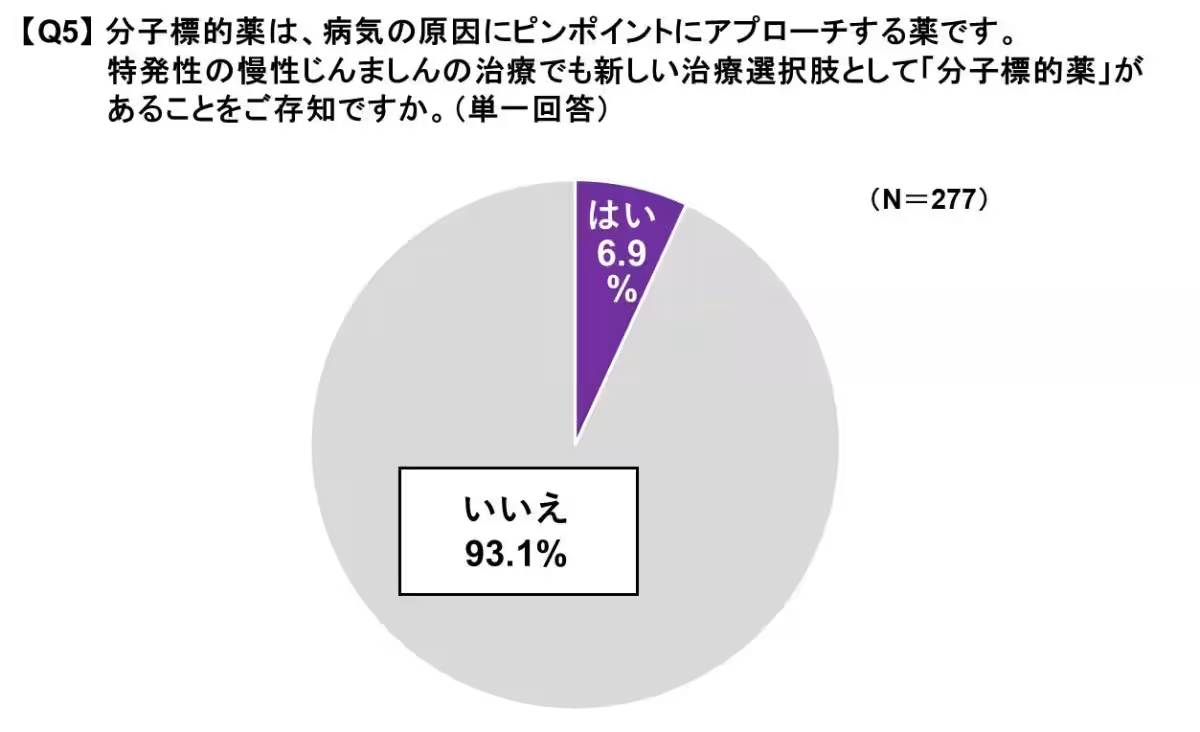

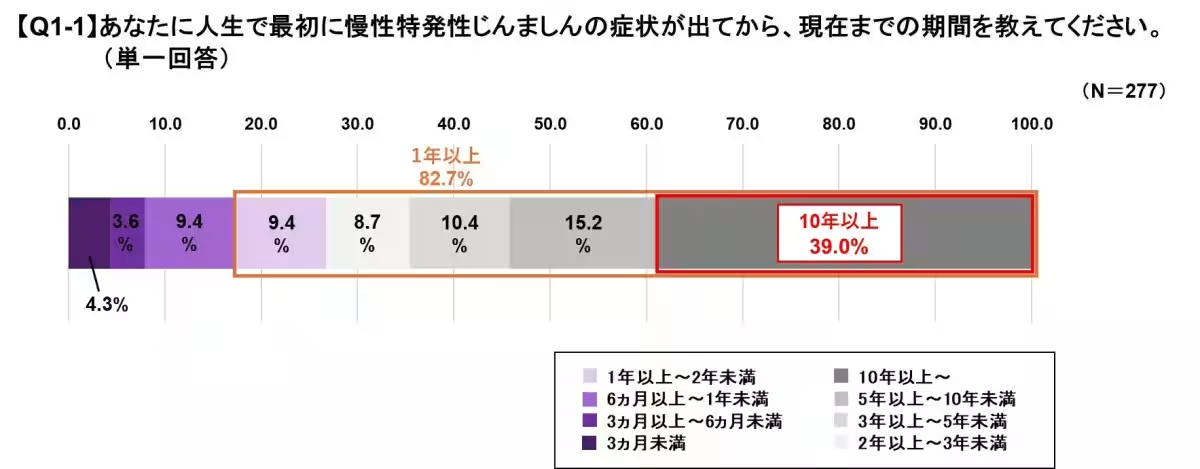
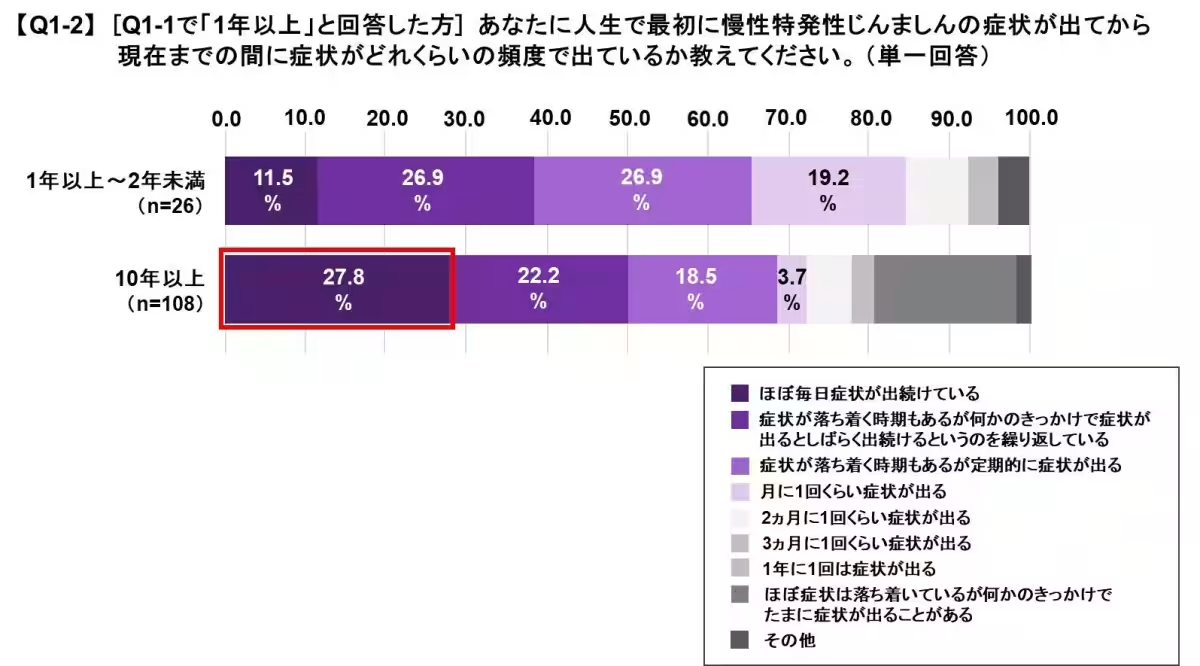
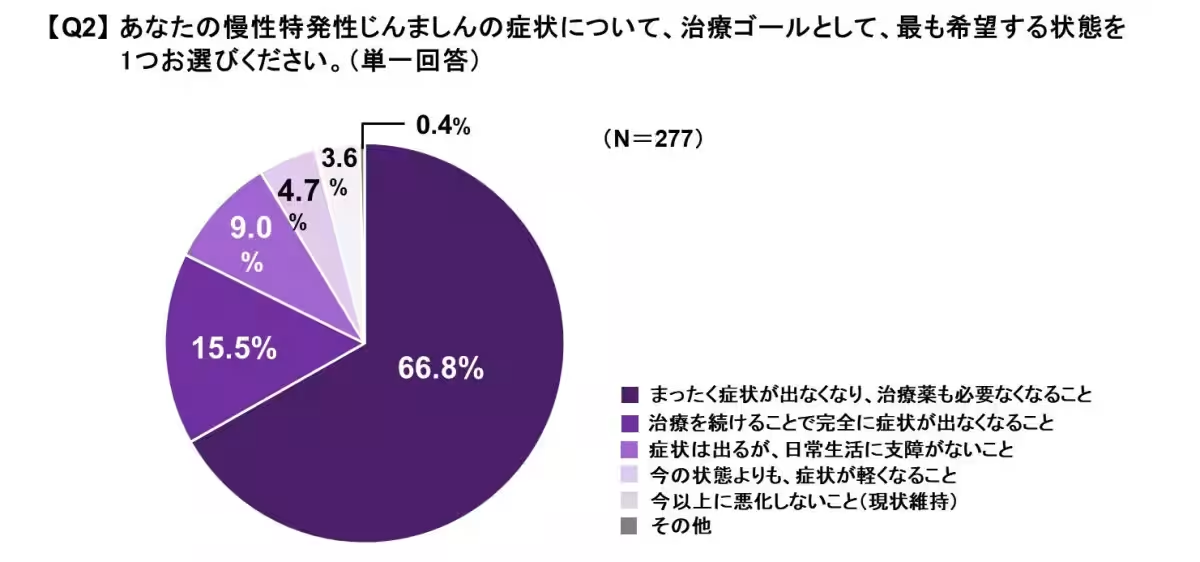
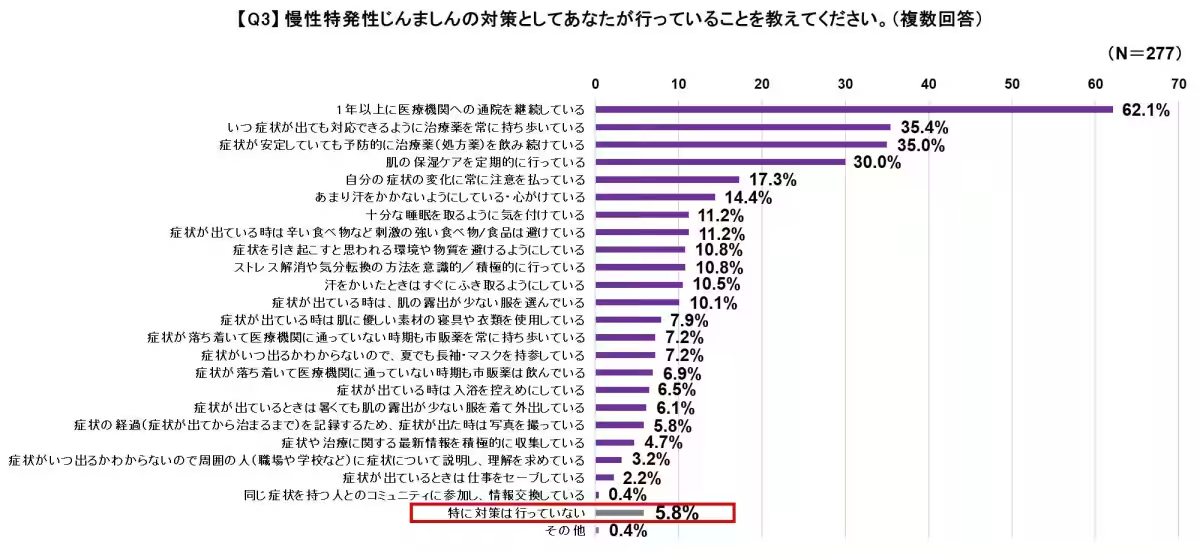
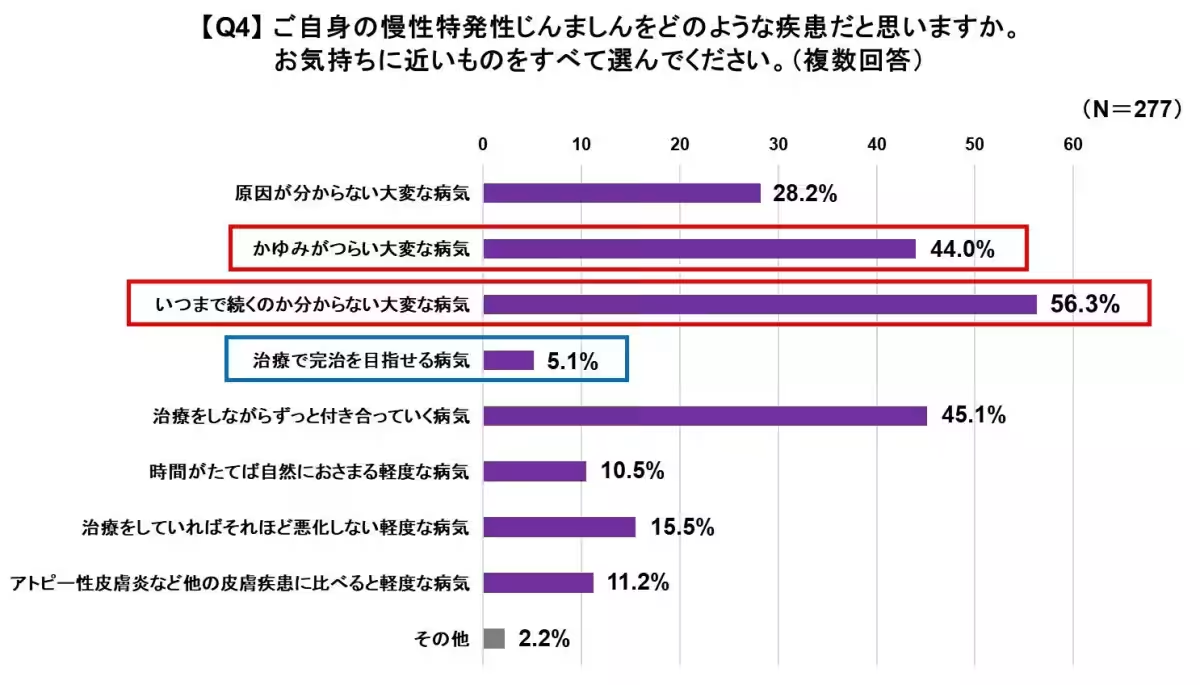
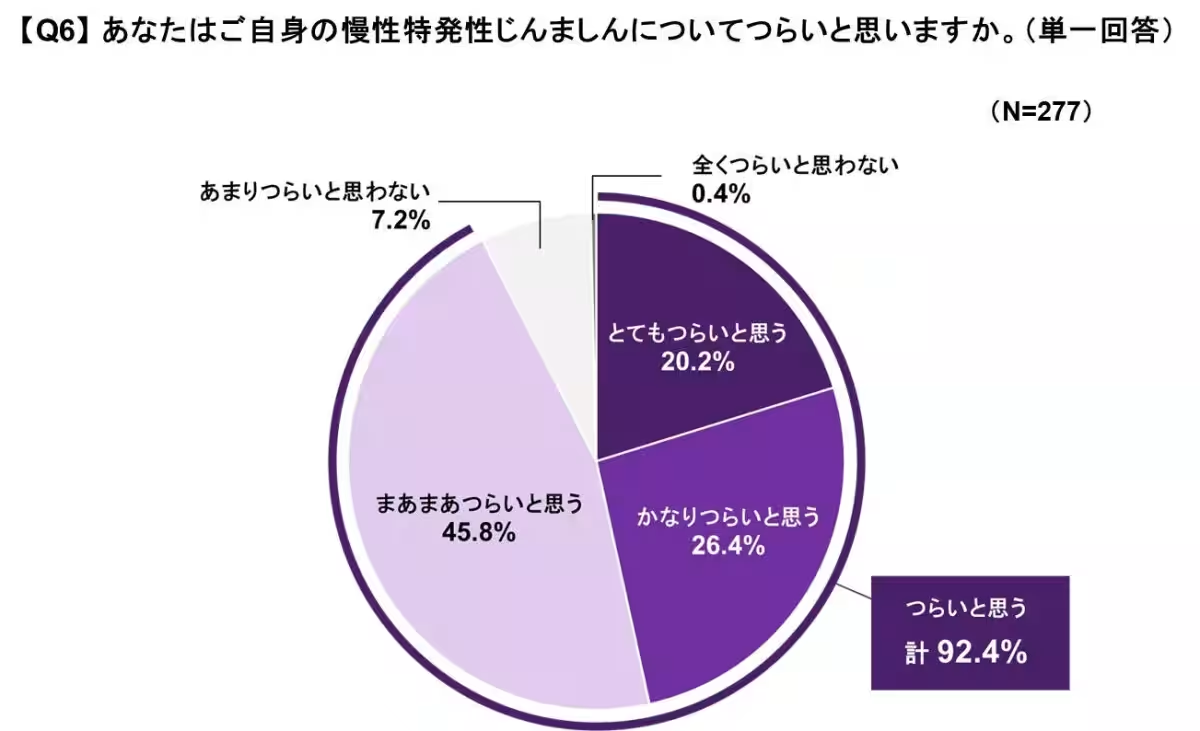
Topics Health)










【About Using Articles】
You can freely use the title and article content by linking to the page where the article is posted.
※ Images cannot be used.
【About Links】
Links are free to use.